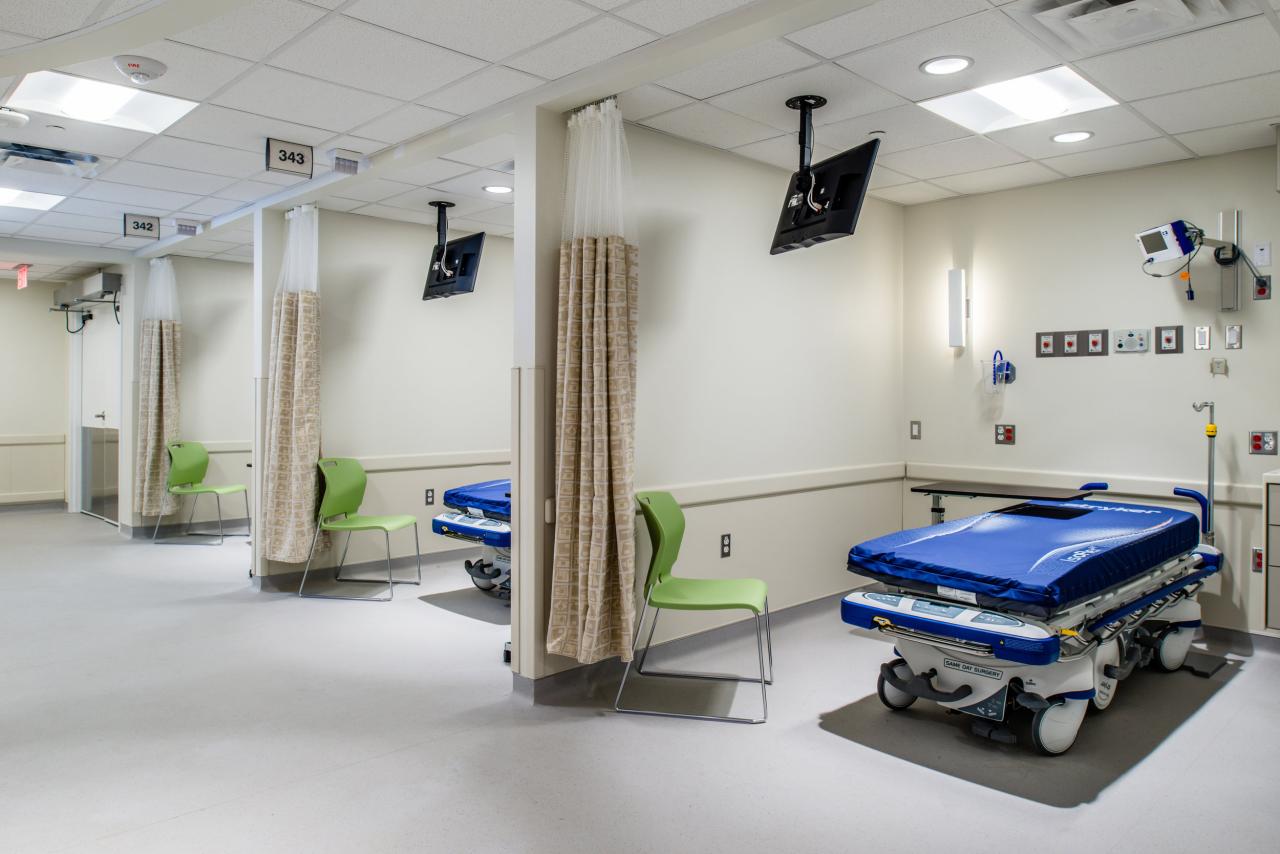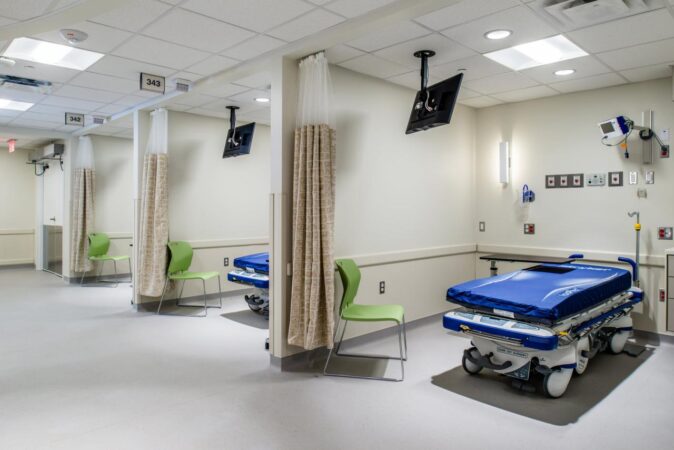
Same-Day Health: An Overview
Same-day health is a type of healthcare that allows patients to receive medical attention on the same day they schedule an appointment. This can be a convenient option for people who are experiencing a non-emergency medical issue and need to be seen by a doctor quickly. Same-day health services can be provided by a variety of healthcare providers, including doctors, nurse practitioners, and physician assistants.
There are many benefits to same-day health. First, it can save patients time. Instead of waiting days or weeks for an appointment, patients can be seen by a doctor on the same day they call. This can be especially helpful for people who are experiencing a painful or uncomfortable medical condition. Second, same-day health can help patients avoid missing work or school. By being able to see a doctor on the same day they call, patients can minimize the amount of time they have to take off from their responsibilities. Third, same-day health can help patients get the care they need sooner. This can be especially important for people who are experiencing a serious medical condition that needs to be treated quickly.
Some examples of same-day health services include:
* Sick visits
* Physical exams
* Immunizations
* Minor injuries
* Prescription refills
Same-Day Health vs. Urgent Care
Same-day health and urgent care are both convenient options for receiving medical attention without an appointment. However, there are some key differences between the two. Same-day health is typically provided by primary care physicians or nurse practitioners, while urgent care is provided by emergency room physicians or physician assistants.
Advantages of Same-Day Health
- More comprehensive care: Same-day health providers can offer a wider range of services than urgent care providers, including physical exams, vaccinations, and chronic disease management.
- Established relationship with provider: Same-day health providers are often part of your primary care team, so you can build a relationship with them over time.
- Lower cost: Same-day health visits are typically less expensive than urgent care visits.
Disadvantages of Same-Day Health
- Limited availability: Same-day health appointments are often not available on weekends or evenings.
- May not be able to handle serious emergencies: Same-day health providers are not trained to handle serious emergencies, such as heart attacks or strokes.
Advantages of Urgent Care
- More convenient hours: Urgent care centers are typically open on weekends and evenings.
- Can handle more serious emergencies: Urgent care providers are trained to handle a wider range of emergencies than same-day health providers.
- No appointment necessary: You can simply walk into an urgent care center without an appointment.
Disadvantages of Urgent Care
- Higher cost: Urgent care visits are typically more expensive than same-day health visits.
- Less comprehensive care: Urgent care providers offer a more limited range of services than same-day health providers.
- May not be able to establish a relationship with provider: Urgent care providers are typically not part of your primary care team, so you may not be able to build a relationship with them over time.
Table of Key Differences
| Feature | Same-Day Health | Urgent Care |
|---|---|---|
| Provider | Primary care physician or nurse practitioner | Emergency room physician or physician assistant |
| Services | Physical exams, vaccinations, chronic disease management | More serious emergencies, such as heart attacks or strokes |
| Availability | Limited availability on weekends or evenings | More convenient hours, including weekends and evenings |
| Cost | Less expensive | More expensive |
| Relationship with provider | Can build a relationship with provider over time | May not be able to establish a relationship with provider |
Same-Day Health for Specific Conditions
Same-day health is a convenient and efficient option for treating a wide range of non-emergency medical conditions. These conditions can be acute or chronic, and may require treatments such as antibiotics, injections, or minor procedures.
Here are some common conditions that can be effectively treated with same-day health:
Urinary Tract Infections (UTIs)
- UTIs are bacterial infections of the urinary tract, causing symptoms such as frequent urination, burning sensation during urination, and pelvic pain.
- Same-day health providers can diagnose and treat UTIs with antibiotics, which can quickly resolve the infection.
Minor Injuries
- Minor injuries, such as cuts, bruises, and sprains, can be treated at same-day health clinics.
- Providers can clean and dress wounds, apply bandages, and provide pain medication as needed.
Respiratory Infections
- Respiratory infections, such as the common cold and flu, can be managed with same-day health services.
- Providers can prescribe antiviral medications, decongestants, and cough suppressants to alleviate symptoms.
Skin Conditions
- Same-day health providers can diagnose and treat a variety of skin conditions, such as rashes, acne, and eczema.
- Treatments may include topical creams, ointments, or oral medications.
Ear Infections
- Ear infections are common in children and can cause pain, fever, and hearing loss.
- Same-day health providers can examine the ear, prescribe antibiotics, and provide pain relief.
Case Study: Successful Same-Day Health Intervention for a UTI
A 25-year-old female presented to a same-day health clinic with symptoms of a UTI, including frequent urination, burning sensation, and pelvic pain. The provider performed a urine analysis, which confirmed the presence of bacteria. The patient was prescribed antibiotics, and her symptoms resolved within 24 hours.
Future of Same-Day Health

The future of same-day health is promising, with advancements in technology and an increasing demand for convenient and accessible healthcare services. Same-day health is expected to continue expanding and evolving to meet the changing needs of patients.
Emerging Technologies
Emerging technologies, such as telemedicine, artificial intelligence (AI), and wearable devices, are playing a significant role in shaping the future of same-day health. Telemedicine allows patients to consult with healthcare providers remotely, increasing access to care and reducing wait times. AI can be used to automate tasks, improve diagnosis, and provide personalized treatment plans. Wearable devices can monitor patients’ health in real-time, allowing for early detection and intervention.
Increased Accessibility
Same-day health is becoming more accessible through the expansion of clinics and partnerships with healthcare providers. Many clinics are now offering extended hours and walk-in appointments, making it easier for patients to receive care when they need it. Partnerships with healthcare providers allow patients to schedule same-day appointments with specialists, reducing the need for multiple visits and long wait times.
Personalized Care
Advancements in technology are also enabling more personalized care. AI can analyze patient data to identify individual risk factors and tailor treatment plans accordingly. Wearable devices can provide real-time feedback on a patient’s health, allowing healthcare providers to adjust treatment plans as needed. This personalized approach to care can lead to better outcomes and improved patient satisfaction.
Improved Outcomes
The future of same-day health holds great potential for improved patient outcomes. Early diagnosis and intervention through telemedicine and wearable devices can prevent serious health conditions from developing. Personalized care plans can lead to more effective treatments and reduced complications. By providing convenient and accessible care, same-day health can help patients stay healthy and manage chronic conditions more effectively.





